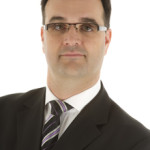
by Peter Holtmann:
The audit profession consists of an aging workforce planning for retirement. And as they retire, so, too, is their knowledge retiring. The time is right to retain industry expertise through the creation of certified technical experts.
I have written a number of times on the increasing complexity of third-party audits, the current lack of competence to manage the changes in the requirements of standards, and the exodus of experience.
It’s becoming apparent that within the next 5-8 years more than 80 percent of technical expertise will be leaving the auditing profession. We know this as fact from data gathered through surveying auditors.
The loss of this level of expertise in the auditing profession is being experienced in other industries such as engineering, where theory is not complementing real-world problem solving skills for construction or design.
We should be cognizant that once the expertise is gone it’s not coming back. Future generations will need to learn the lessons again and this takes time. This could lead to industry paralysis.
Finding solutions to this issue is quite pragmatic and within our control. The use of this technical expertise to augment the audit process is indeed valuable to the client and to the auditor or certification body (registrar) and must be considered.
Many professional auditors with the technical expertise gained from more than 20 years experience are fast approaching their retirement. The desire to work full time in the auditing profession—pulling 90-hour weeks, traveling relentlessly, and creating great tomes of audit paperwork—is dissipating. Providing guidance to the next generation of audit professions is attractive.
In the vacuum of technical knowledge the audit professional will need to rely on the use of technical experts to provide the much-needed technical competence during an onsite audit. The opportunity for the auditor over 55 years of age is now.
To auditors with 20 years or more of experience, with expertise across more than one industry sector (or IAF code or technical area), with lead auditor status and a competent understanding of multiple registrar audit systems—you are in high demand. In fact, you will soon be of greater value to registrars than the auditors.
Showcasing your experience against technical areas will be important for you. You should work to gain credentialing in as many technical areas as you have competence. You can start by having a clearly defined audit log of audits showing what technical areas you have been working in, what standards auditing was conducted in these technical areas, how many auditors were involved, and for how many days.
The new ISO 17021 “dashes” help define what a registrar is looking for in terms of personnel competence and can be a great place to start looking for guidance on how to demonstrate it.
Have your skill for auditing technical competence assessed on an audit. Many registrars are required by their accreditation bodies to have their auditors witnessed for new standards, scopes, and technical areas. The skill assess/witness audit demonstrates your practical application of knowledge on site and under audit conditions.
Work with a personnel certification body to have your competencies in these areas formalized. As you will be in demand, and most likely under contract to several different registrars, the need to demonstrate your credentials in a standardized format will ensure you are first pick.
You should be working to “give back.” This is the premise that our industry needs the knowledge you have gained over the years to build upon its foundations. We need the knowledge to be spread widely to those eager to learn it.
Use the network of developing auditors, which seeks assistance through informal channels, to build their competencies and capabilities. Make yourself available to them to ensure they gain the technical insights you possess. Ensure that technical competence is not a thing of past generations.
Auditing professionals and the industry are undergoing great change. As the population of auditors moves into retirement, the retention of technical competence can be addressed by offering certification for technical experts who remain engaged to assist the profession and to impart their wisdom to developing auditors.
Does this article speak to you and your future plans? If so, lets hear from you.
About the author
Peter Holtmann is president and CEO of Exemplar Global (formerly RABQSA International Inc.) and has more than 10 years of experience in the service and manufacturing industries. He received his bachelor’s degree in chemistry from the University of Western Sydney in Australia and has worked in industrial chemicals, surface products, environmental testing, pharmaceutical, and nutritional products. Holtmann has served on various international committees for the National Food Processors Association in the United States and on the Safe Quality Foods auditor certification review board.

